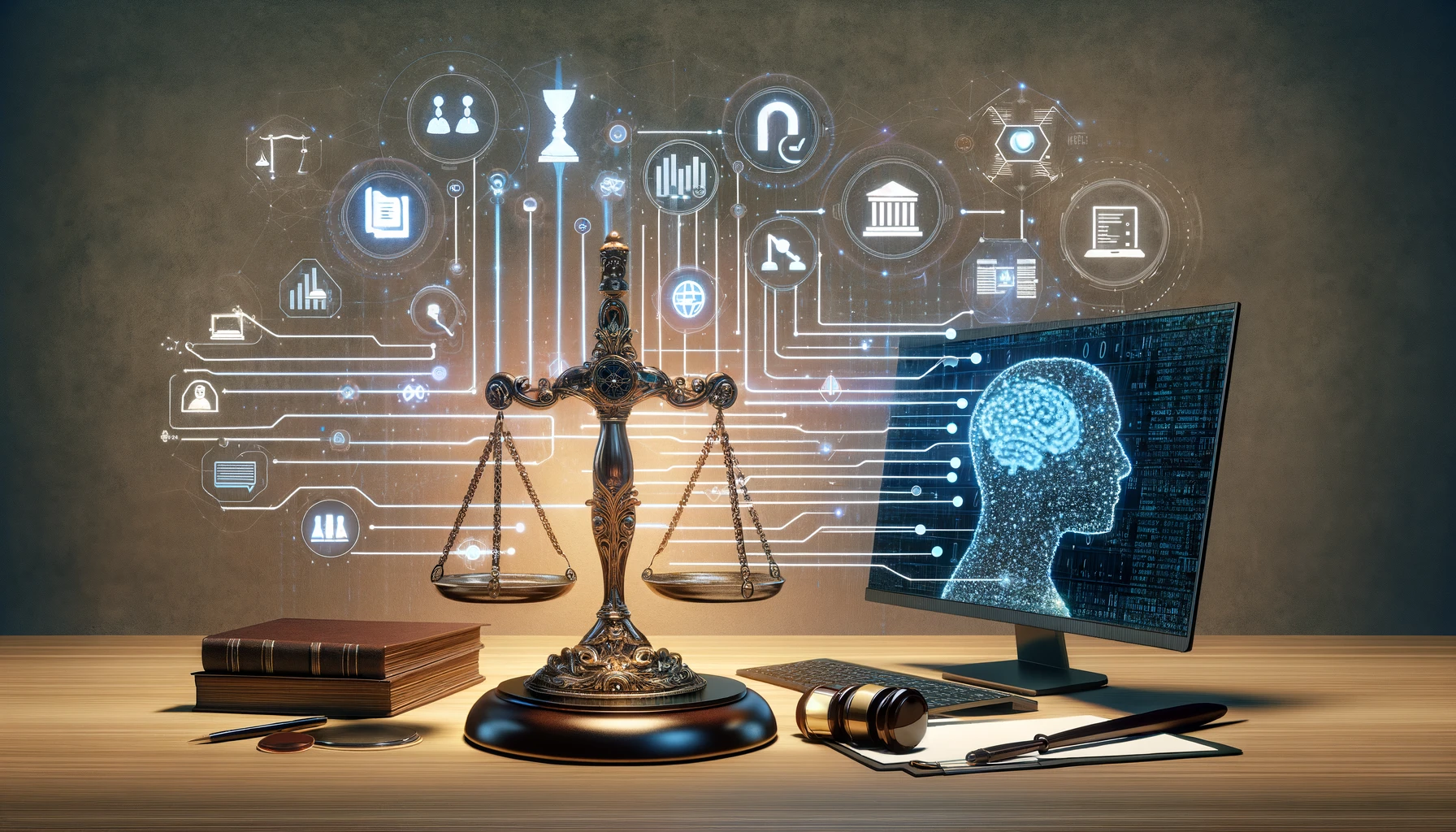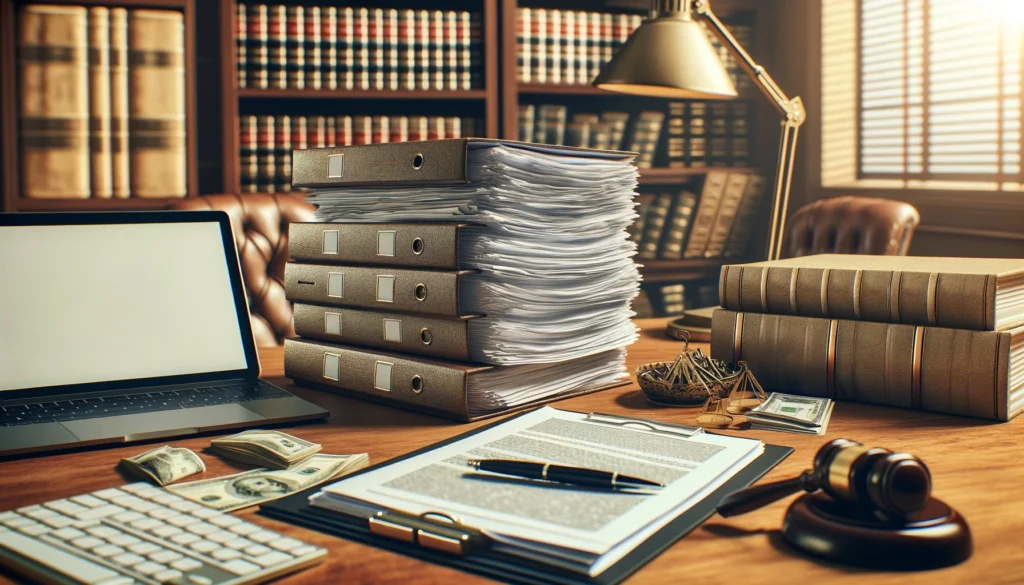
Navigating the New Frontier: Welcome to AI in Personal Injury Law
Advancements in artificial intelligence are ushering in a new era for the legal profession, particularly in personal injury law. At the forefront of this wave is ChatGPT, a sophisticated AI tool that’s revolutionizing the way legal professionals conduct their work. By streamlining research, drafting documents, and even managing project workflows, ChatGPT is becoming indispensable in modern legal practice.
Streamlining Research: The Speed and Precision of ChatGPT
One of the most labor-intensive aspects of personal injury litigation is legal research. Here, ChatGPT shines by transforming the speed and accuracy with which attorneys can gather information. By inputting specific research prompts, lawyers can efficiently obtain case law, statutes, and precedents relevant to their cases.
To optimize ChatGPT’s research capabilities, enter detailed questions or scenarios:
- Case Law Research: “Summarize recent personal injury cases involving traumatic brain injuries in [specific state].”
- Statute Analysis: “Explain the nuances of [specific statute] as it applies to slip and fall accidents.”
However, it’s crucial to cross-verify the information obtained from AI with reputable sources. The legal space is nuanced, and while ChatGPT enhances efficiency, relying solely on AI without cross-referencing could lead to inaccuracies. Use it as a primary resource but always back your findings with trusted legal databases and texts.
Next, we explore how ChatGPT can elevate document preparation, making it both comprehensive and coherent.
Also read:
Drafting with Finesse: How ChatGPT Can Assist in Document Preparation
Document preparation is another area where ChatGPT can make substantial contributions. From pleadings and motions to detailed briefs, this AI ensures each document is meticulously drafted, capturing the complexity of legal language while maintaining readability.
Utilize focused prompts to reflect the specific requirements of legal documents:
- Pleadings: “Draft a complaint for a personal injury lawsuit involving a car accident with [specific details].”
- Briefs: “Prepare a motion in limine to exclude expert testimony based on Daubert standards.”
Moreover, ChatGPT can help refine the drafts for coherence and legal soundness. By ensuring clarity and logical flow, AI-generated drafts can undergo quicker revisions, allowing lawyers to focus more on strategic aspects of case management. With document drafting optimized, next we look at how ChatGPT can streamline interview preparation.
Also read:
Mastering Interview Prep: Using ChatGPT to Formulate Questions for Witnesses and Clients
Another critical component of personal injury litigation is client and witness interviews. ChatGPT can assist in formulating comprehensive and precise questions tailored to the specifics of each case.
Crafting detailed prompts can yield robust question sets:
- Client Interviews: “List ten questions to ask a client about their experiences post-accident.”
- Witnesses: “Develop five follow-up questions based on a witness’s deposition regarding the accident.”
By employing such techniques, you can ensure every angle is covered in your interviews, preparing you to respond effectively to the varied responses. Following interview prep, let’s delve into how ChatGPT assists in the discovery process.
Also read:
Evidentiary Goldmine: Organizing Discovery with AI Assistance
The discovery phase often presents a labyrinth of documents and transcripts. ChatGPT simplifies this by assisting in the drafting of discovery requests and organizing evidence efficiently.
Leverage ChatGPT for:
- Discovery Requests: “Generate a discovery request targeted at obtaining the defendant’s maintenance records.”
- Document Organization: “Create a summary of key points from [specific deposition transcript].”
Maximizing efficiency in the document review process now becomes a streamlined operation, freeing up time for more strategic planning. Next, we explore how AI can help in developing persuasive case narratives.
Also read:
Persuasive Narratives: Using ChatGPT to Develop Case Theories
Developing convincing case theories is paramount in personal injury litigation. ChatGPT can propose diverse scenarios and aid in crafting compelling narratives that bolster your arguments.
Create:
- Case Theories: “Outline possible defenses for a defendant in a slip-and-fall accident case.”
- Narrative Building: “Develop an opening statement highlighting negligence in a workplace injury case.”
This AI-driven approach helps refine your case theories, enhancing your strategy and courtroom delivery. Following narrative creation, we’ll see how ChatGPT assists in overall case management.
Also read:
Project Management Perfection: Keeping Your Case on Track with AI Tools
Effective project management ensures no detail is overlooked in personal injury litigation. ChatGPT aids in this by streamlining task management and maintaining deadline awareness.
For instance:
- Task Management: “Generate a checklist for pre-trial preparations in a personal injury case.”
- Deadline Tracking: “List important upcoming dates for [specific case name].”
Such prompts help you keep tasks organized and ensure timely completion of all case-related activities. While leveraging these capabilities, it’s also essential to consider ethical practices, discussed next.
Also read:
Safeguards and Ethics: Ensuring Responsible Use of ChatGPT in Legal Support
The increasing use of AI in legal practice also brings ethical and confidentiality concerns. Safeguarding client information and adhering to ethical guidelines remains paramount.
Ensure:
- Confidentiality and data security in all AI-assisted tasks.
- Compliance with legal standards and best practices in AI utilization.
By maintaining these safeguards, you can responsibly harness the power of AI in your legal practice. Lastly, let’s discuss how to future-proof your practice by staying ahead of AI trends.
Also read:
Future-Proofing Your Practice: Staying Ahead with Continuous AI Learning
Embracing continuous learning and adaptation of AI tools like ChatGPT will be vital for future success in personal injury law. Encourage ongoing training to enhance AI interaction skills and stay updated with AI advancements.
Implement:
- Regular training sessions for team members on the latest AI functionalities.
- Subscription to industry journals and AI research publications.
By fostering a tech-savvy culture, your practice can remain competitive and innovative in the evolving legal landscape.


